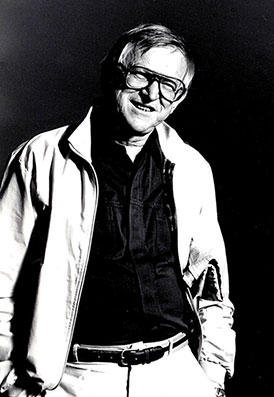
 |

|
| Robert Cormier (pronounced kor-MEER) lived all his life in Leominster, Massachusetts, a small town in the north-central part of the state, where he grew up as part of a close, warm community of French Canadian immigrants and lived with his wife, Connie, also from Leominster, and where they raised their three daughters and one son—all adults now. They never saw a reason to leave. “There are lots of untold stories right here on Main Street,” Cormier once said. A newspaper reporter and columnist for 30 years (working for the Worcester Telegram and Gazette and the Fitchburg Sentinel), Cormier was often inspired by news stories. What makes his works unique is his ability to make evil behavior understandable, though, of course, still evil. “I’m very much interested in intimidation,” he told an interviewer from School Library Journal. “And the way people manipulate other people. And the obvious abuse of authority.” All of these themes are evident in his young adult classic and best-known book, The Chocolate War. A 15-year-old fan of Cormier’s told him, “You always write from inside the person.” Cormier traveled the world, from Australia (where he felt particularly thrilled by putting his hand in the Indian Ocean) and New Zealand to most of the countries in Europe, speaking at schools, colleges, and universities, and to teacher and librarian associations. He visited nearly every state in the nation. While Cormier loved to travel, he said many times that he also loved returning to his home in Leominster. Cormier was a practicing Catholic and attended parochial school, where in seventh grade, one of his teachers discovered his ability to write. But Cormier had always wanted to be a writer: “I can’t remember a time when I wasn’t trying to get something down on paper.” His first poems were published in the Leominster Daily Enterprise, and his first professional publication occurred while he was a freshman at Fitchburg State College. His professor, Florence Conlon, sent his short story, without his knowledge, to The Sign, a national Catholic magazine. The story, titled “The Little Things That Count,” sold for $75. Cormier’s first work as a writer was at radio station WTAG in Worcester, MA, where he wrote scripts and commercials from 1946 to 1948. In 1948, he began his award-winning career as a newspaperman with the Worcester Telegram, first in its Leominster office and later in its Fitchburg office. He wrote a weekly human-interest column, “A Story from the Country,” for that newspaper. In 1955, Cormier joined the staff of the Fitchburg Sentinel, which later became the Fitchburg-Leominster Sentinel and Enterprise, as the city hall and political reporter. He later served as wire and associate editor and wrote a popular twice-weekly column under the pseudonym John Fitch IV. The column received the national K.R. Thomason Award in 1974 as the best human-interest column written that year. That same year, he was honored by the New England Associated Press Association for having written the best news story under pressure of deadline. He left newspaper work in 1978 to devote all his time to writing. Robert Cormier’s first novel, Now and at the Hour, was published in 1960. Inspired by his father’s death, the novel drew critical acclaim and was featured by Time magazine for five weeks on its “Recommended Reading” list. It was followed in 1963 by A Little Raw on Monday Mornings and in 1965 by Take Me Where the Good Times Are, also critically acclaimed. The author was hailed by the Newark Advocate as being “in the first rank of American Catholic novelists.” In 1974, Cormier published The Chocolate War, the novel that is still a bestseller. Instantly acclaimed, it was also the object of censorship attempts because of its uncompromising realism. In a front-page review in a special children’s issue of The New York Times Book Review, it was described as “masterfully structured and rich in theme,” and it went on to win countless awards and honors, was taught in schools and colleges throughout the world, and was translated into more than a dozen languages. I Am the Cheese followed in 1977 and After the First Death in 1979. These three books established Cormier as a master of the young adult novel. In 1991, the Young Adult Services Division of the American Library Association presented him with the Margaret A. Edwards Award, citing the trio of books as “brilliantly crafted and troubling novels that have achieved the status of classics in young adult literature.” In 1982, Cormier was honored by the National Council of Teachers of English and its Adolescent Literature Assembly (ALAN) for his “significant contribution to the field of adolescent literature” and for his “innovative creativity.” On November 2, 2000, Robert Cormier passed away after a battle with lung cancer. |
| AWARDS AND HONORS |
| Margaret A. Edwards Award, which honors an author, as well as a specific body of his or her work, for significant and lasting contribution to young adult literature. |
| BIOGRAPHY |
| Enjoy Robert Cormier: Daring to Disturb the Universe by Patty Campbell |
| INTERVIEWS |
| "An Interview with Robert Cormier," The Horn Book, by Anita Silvey |
| "Dead Bodies in Suburbia," The Guardian, by Lyn Gardner |
| "In Their Own Words: an Interview with Robert Cormier," The English Journal, by Paul Janeczko |
| ARTICLES |
| "I Am the Cheese: a Nightmarish Nail Biter," National Public Radio, by Ben Marcus |
| REMEMBRANCES |
| “Robert Cormier Remembered,” Publishers Weekly, by Marilyn E. Marlow, Craig Virden, Karen Wojtyla, Susan P. Bloom, Michael Cadnum, George Nicholson, and Michael Cart |
| "Robert Cormier," Random House |
| "Ice Picks in the Brain: The Rag and Bone Shop by Robert Cormier," The Quivering Pen, by David Abrams |